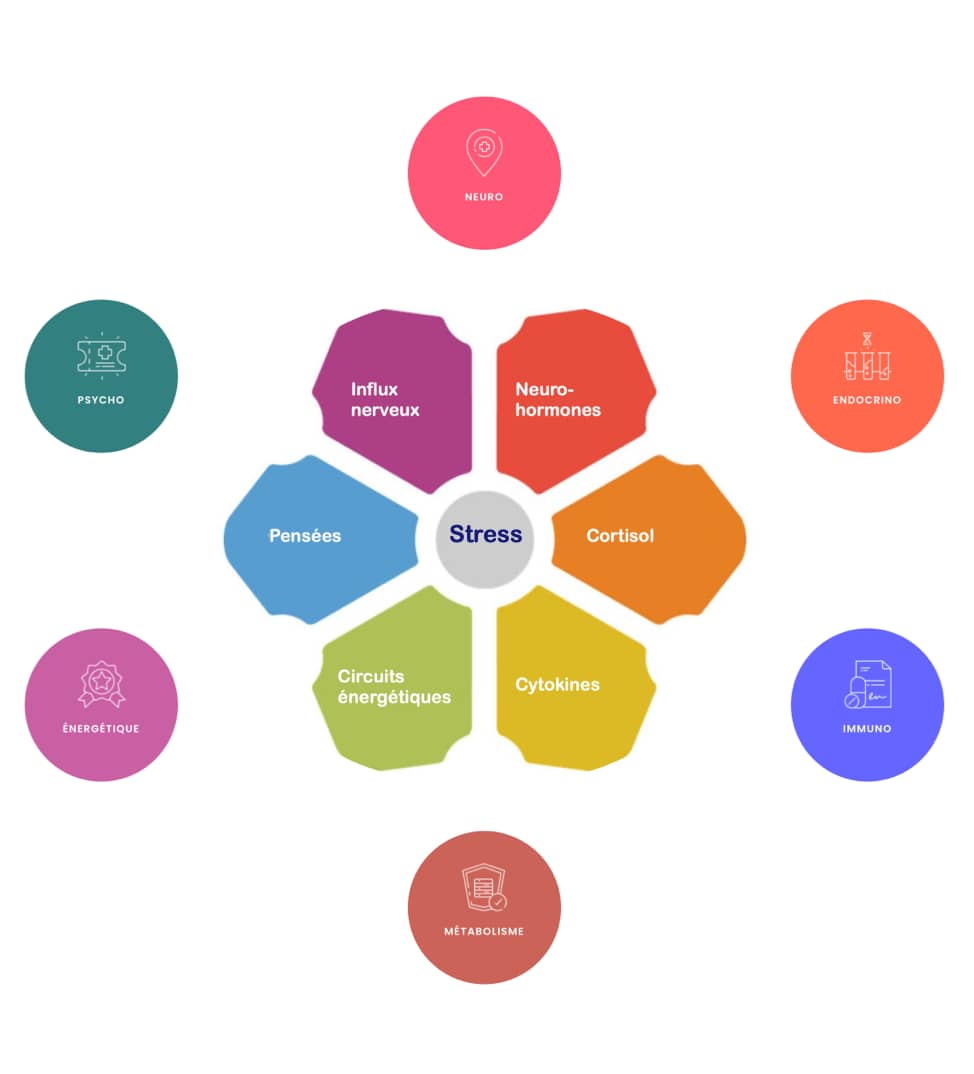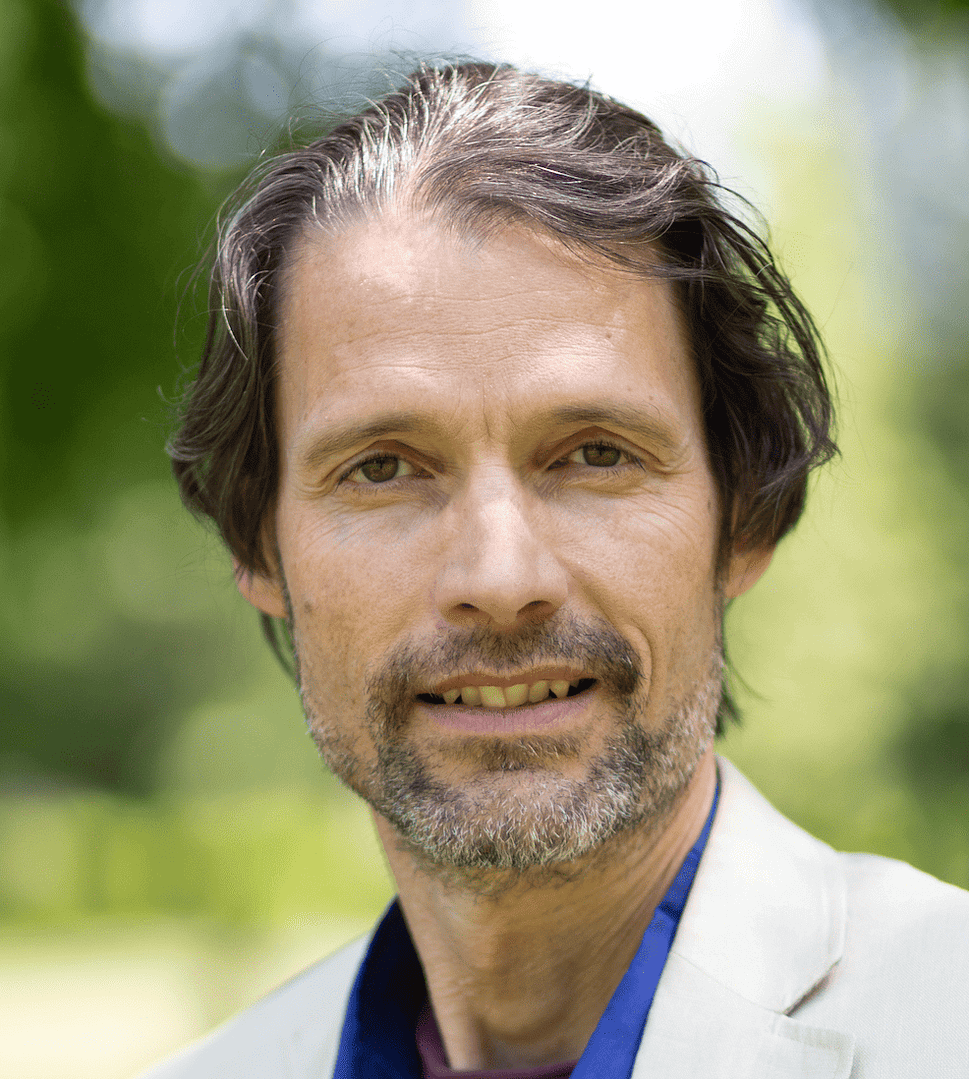PNEI, energetic and metabolism
Psycho-neuro-endocrino-immunology, also known as PNEI, is a scientific discipline that studies the complex interactions between psychology, neurology, endocrinology, immunology, energetics and metabolism. It explores how these different systems interact to influence our health and well-being.
In this article, we’ll look at each aspect of PNEI and provide accessible information on their importance and implications for our overall health.

Psycho-neuro-endocrino-immunology
Psychology
Psychology is the scientific study of behavior and mental processes. In the context of PNEI, psychology examines how our thoughts, emotions and behaviors can impact our nervous, endocrine and immune systems. Studies have shown that psychological factors such as stress, anxiety and depression can impact our physical health by altering the function of these different systems.
Neurology
Neurology studies the nervous system, including the brain, spinal cord and peripheral nerves. As part of the PNEI, neurology examines how the nervous system interacts with other systems to regulate biological processes. For example, the nervous system can influence the release of hormones by the endocrine system and the modulation of immune system activity. Neurological research has also revealed the importance of brain plasticity, i.e. the brain’s ability to modify and reorganize itself in response to experience and the environment.
Endocrinology
Endocrinology is the study of hormones and their role in regulating bodily functions. Hormones are chemical substances produced by the endocrine glands and released into the bloodstream to act on target cells throughout the body. In the context of PNEI, endocrinology examines how hormones influence the physiological, psychological and behavioral aspects of our health. For example, cortisol, a hormone produced in response to stress, can have an impact on our immune system and metabolism.
Immunology
Immunology is the study of the immune system, which is responsible for our body’s defense against infection and disease. The immune system is made up of different types of cells, tissues and organs that work together to recognize and eliminate foreign or harmful substances. Immunology examines how psychological, neurological and endocrine factors can influence immune function. Research has shown that chronic stress, for example, can weaken our immune system, making our bodies more vulnerable to disease.
Energetic
The energetic aspect of PNEI explores how energy flows and is regulated in our bodies. According to Eastern medical and philosophical traditions, such as traditional Chinese medicine, energy, called “qi” or “prana”, plays a crucial role in our physical and mental health. Energetics in PNEI examines how energy imbalances can affect other systems, such as the endocrine and immune systems, and how practices such as acupuncture or qi-gong can help restore harmony and overall health.
Metabolism
Metabolism refers to the chemical processes that occur in our bodies to sustain life, such as digestion, breathing and energy production. In the context of PNEI, metabolism is closely linked to hormone regulation and energy balance. Disturbances in metabolism, such as obesity or diabetes, can have consequences for our physical and mental health, as well as for the other systems of the PNEI.
It’s important to understand that these different aspects of the PNEI are interconnected and interdependent. Imbalances in any one of these systems can have repercussions on the others, and vice versa. Therefore, it’s essential to consider the whole system when approaching health and well-being.
Promoting optimal health
- To promote optimal health in the context of PNEI, it is recommended to:
- Adopt stress management practices, such as meditation, relaxation or yoga, to help regulate the nervous system.
- Promote a healthy lifestyle including a balanced diet, regular physical activity and adequate sleep.
- Cultivate positive social relationships and emotional support to promote mental and emotional health.
- Consult qualified healthcare professionals who incorporate a holistic approach that takes into account all aspects of PNEI.
In conclusion
Psycho-neuro-endocrino-immunology (PNEI) is a scientific discipline that studies the complex interactions between psychology, neurology, endocrinology, immunology, energetics and metabolism. Understanding these different aspects and their interrelation is essential to promoting optimal health and overall well-being. By taking a holistic approach and considering the whole PNEI system, we can better understand our body and mind, and work to maintain a harmonious balance for a healthy and fulfilling life.
See also: PNEI: when our cells talk to each other
Start taking charge of your health

Naturopath, homeopath, massage therapist (retired!), stress coach and practical kinesiology
Consultations / Conferences / Workshops
Jean-Pierre Deschênes, n.d., h.d., mt.d, coach stress, pract.kin.

Natural and integrative health empowerment approaches putting stress modulation at the center with Qi conscience plein air™ for a better gut-brain connection.
